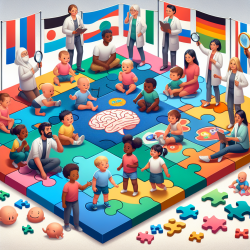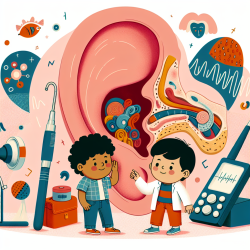As a special education practitioner, staying updated with the latest research and methodologies is crucial to providing the best support for your students. One such resource that stands out is the book "Child Development" by Greta G. Fein, reviewed by Edward H. Cornell. This comprehensive text is designed for introductory-level child psychology courses and offers valuable insights that can significantly enhance your practice.
In this blog, we'll explore key takeaways from "Child Development" and how you can implement these insights to improve your skills and encourage further research in the field.
Key Takeaways from "Child Development"
Fein's book covers a wide range of topics, from prenatal development through adolescence, with a strong emphasis on cognitive, language, and social development. Here are some of the key areas that you can focus on:
- Cognitive Development: Understanding how children think, learn, and solve problems is fundamental. The book highlights various cognitive development stages and provides practical examples of how children acquire and process information.
- Language Development: Language acquisition is a critical aspect of child development. Fein discusses the different stages of language development and offers insights into the factors that influence language learning, such as linguistic environments and peer interactions.
- Social Development: Social interactions play a significant role in a child's development. The book explores the development of social skills, peer relationships, and the impact of social environments on a child's growth.
Implementing the Insights in Your Practice
To effectively incorporate the insights from "Child Development" into your practice, consider the following strategies:
- Continuous Learning: Make it a habit to stay updated with the latest research and methodologies in child development. Attend conferences, webinars, and read relevant publications to enhance your knowledge and skills.
- Practical Application: Apply the theories and concepts discussed in the book to real-life scenarios in your classroom or therapy sessions. For example, use the cognitive development stages to tailor your teaching methods to each child's needs.
- Collaborative Approach: Work closely with parents, teachers, and other professionals to create a supportive environment for the child's development. Share your insights and strategies with them to ensure a consistent approach across different settings.
- Reflective Practice: Regularly reflect on your practice and assess the effectiveness of the strategies you implement. This will help you identify areas for improvement and make necessary adjustments to better support your students.
Encouraging Further Research
While "Child Development" provides a solid foundation, it's essential to continue exploring new research and developments in the field. Here are some ways to encourage further research:
- Join Professional Networks: Engage with professional networks and communities that focus on child development and special education. These platforms provide opportunities to share knowledge, collaborate on research projects, and stay updated with the latest trends.
- Participate in Research Studies: Get involved in research studies and contribute to the growing body of knowledge in the field. This can also provide you with firsthand experience and insights that can enhance your practice.
- Promote Evidence-Based Practices: Advocate for the use of evidence-based practices in your school or organization. Encourage your colleagues to adopt research-backed methodologies and share the positive outcomes with the wider community.
By implementing the insights from "Child Development" and encouraging further research, you can significantly enhance your skills and provide better support for your students. Remember, continuous learning and collaboration are key to staying ahead in the ever-evolving field of special education.
To read the original research paper, please follow this link: Child Development.










